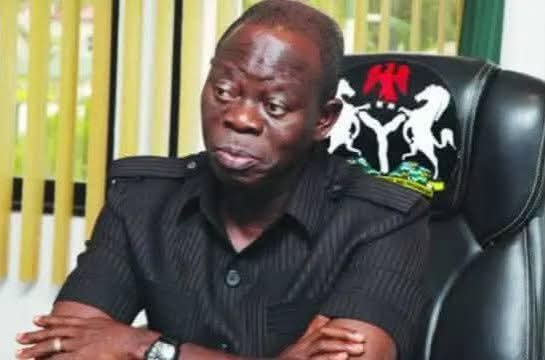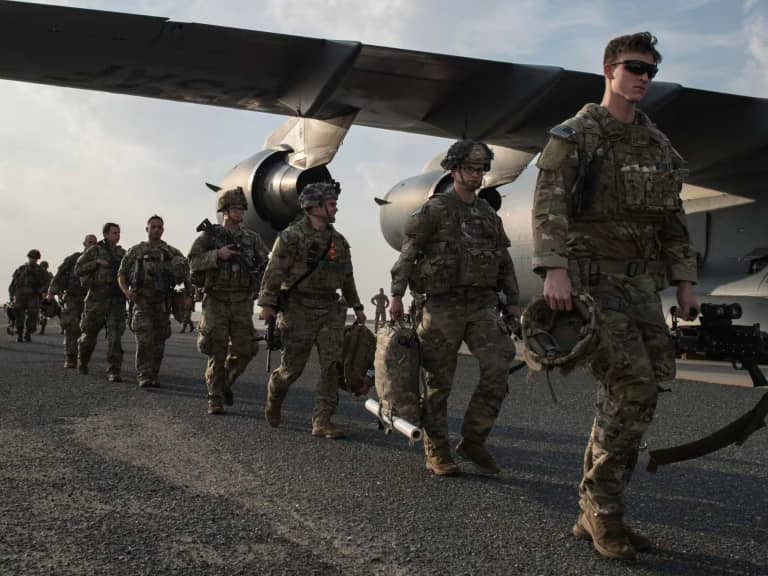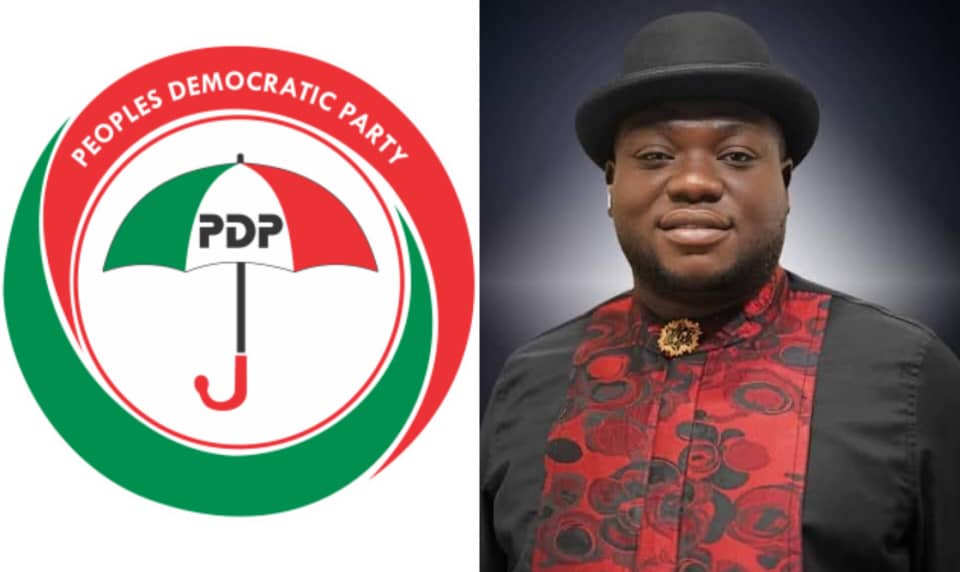Former Governor of Edo State and Senator, Adams Aliyu Oshiomhole, has spoken out against Nigerian airline Air Peace, accusing the company of exploiting passengers through discriminatory boarding practices and profiteering from last-minute ticket sales.
His account, shared publicly, detailed a personal experience involving delayed and cancelled flights, abrupt boarding denials, and what he described as an unethical reselling of tickets at inflated prices.
READ ALSO: Tinubu-Shettima-1024×1024
According to Oshiomhole, his recent difficulties with Air Peace began when a previously booked flight was delayed for over five hours before ultimately being cancelled. Forced to make alternative arrangements, he later booked a 6:30 a.m. flight for the following day. To avoid similar issues, he and two Ghanaian associates checked in online ahead of time and had no luggage to check.
Despite these precautions, Oshiomhole said he arrived at the airport at around 6:05 a.m., only to be told that the counter was already closed. He argued that since the flight was scheduled for 6:30 a.m., the gate should not have been closed 25 minutes in advance, especially for passengers who had already checked in online. He questioned the point of offering online check-in if it did not guarantee boarding access or streamline the process.
Oshiomhole further alleged that during this time, he observed Air Peace personnel still allowing other passengers to board the flight. According to him, these individuals were purchasing tickets on the spot at significantly higher prices. He cited an example of a woman with an infant who had arrived at 5:55 a.m. for the same flight, only to be told that the check-in had closed and that the flight was full. She had purchased her ticket online for ₦146,000 but was informed that to fly later, she would need to buy a new ticket at ₦109,100, pushing her total cost for a one-hour flight to over ₦250,000.
Oshiomhole claimed that Air Peace’s actions amounted to deliberately sidelining early-booked, lower-fare passengers in favor of selling last-minute seats at premium prices. He said this practice left many passengers stranded and frustrated, as staff repeatedly cited “closed check-in” while actively selling new tickets. He questioned the integrity of the process and pointed to a systemic failure of oversight by regulatory agencies, which he accused of compromising their responsibilities.
When security officials from the Department of State Services (DSS) and the Nigerian Air Force arrived to investigate the situation, they reportedly offered to place the woman and others affected on the next available flight. However, this offer came with the condition of paying additional fees, essentially forcing passengers to pay twice for the same trip. According to Oshiomhole, the situation caused widespread anger and confusion among stranded travelers.
He said he confronted the airline’s manager, demanding to know why boarding was denied to paying passengers who had complied with all requirements. He emphasized that the aircraft was still on the ground, and no clear justification was given for the boarding denials.
In a gesture of personal support, Oshiomhole stated that he transferred ₦500,000 to the woman with the infant to assist with her travel expenses. He also explained that he declined an offer to be escorted to a lounge, choosing instead to remain with the aggrieved passengers. He said fellow travelers had urged him to stay and witness the recurring challenges faced by ordinary passengers at the airport.
Oshiomhole concluded that the issue highlighted deeper structural problems within Nigeria’s aviation industry, where rules are routinely ignored, and commercial interest often overrides fairness and accountability. He warned that unless regulatory bodies enforce operational standards, such practices would continue to hurt travelers and erode public trust.
The former governor called for stricter oversight and adherence to passenger rights, stating that the incident was symptomatic of broader negligence within the country’s aviation sector. He stressed that airlines must be held accountable to ensure that passengers are not subjected to arbitrary treatment or forced to repurchase tickets under duress.





